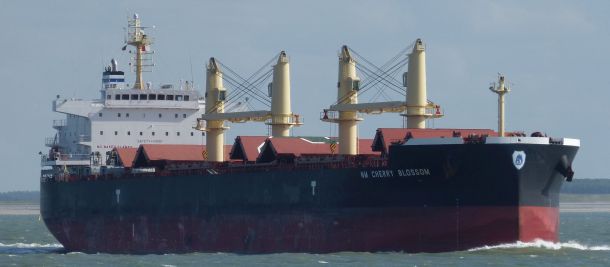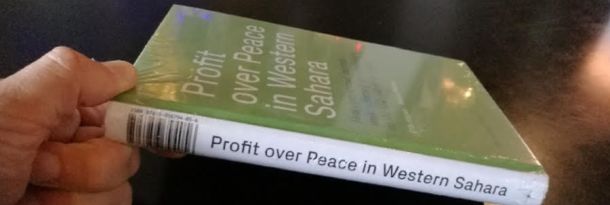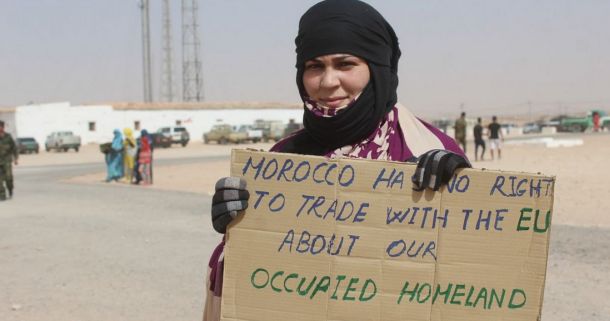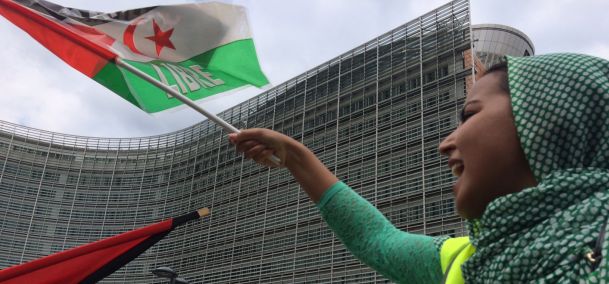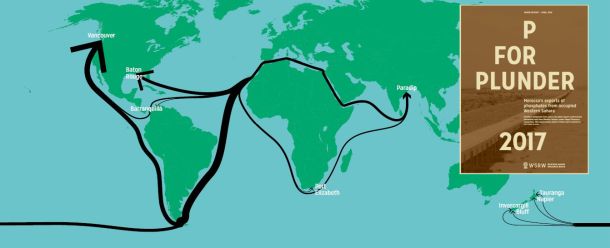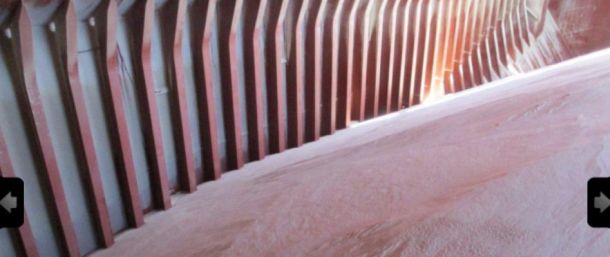The European Commission is trying to push through a new trade agreement with Morocco for the territory of Western Sahara, in disregard of the Court of Justice of EU judgment of 2016. WSRW has summarised why its approach is wrong.
€84 million in return for fishing licenses - is what Rabat threw on the table in the EU-Morocco negotiations for a new Fisheries Protocol. Earlier this year, the EU Court of Justice invalidated the application of the EU-Morocco fish arrangement to Western Sahara - where 91.5% of the EU's fishing activities under the deal take place.
For decades, a small office in London shipped phosphate rock from occupied Western Sahara to Australia/New Zealand. After one of the world's biggest shipping companies took over the office, the controversial operation will now be closed.
The EU Commission today received heavy critique from the European Parliament for its suggestion to include occupied Western Sahara in a trade deal with Morocco.
On 15 June 2018, Polisario announced that a new case has been launched regarding the EU-Morocco plans to cooperate on fisheries in the waters of occupied Western Sahara. In the EU-Morocco talks, the EU has so far ignored the two judgments from EU Court of Justice on Western Sahara.
On 24 April 2018, the liberation movement of Western Sahara brought action against the EU Council for concluding an aviation agreement with Morocco that includes the territory of Western Sahara.
The EU foreign affairs department (EEAS) claims it has consulted Polisario on the trade deal for Western Sahara that it has negotiated with Morocco. But the email correspondence between Polisario and the EEAS documents that the Commission's claim is a lie.
83% of the groups that the EU Commission claims have participated in a 'consultation' regarding Western Sahara trade, have either never been asked to take part - or have not taken part - in any consultation process. "We condemn the EU for so gravely misusing our name, and the names of other civil society organisations, to legitimize an illegal trade agreement", WSRW states.
The EU Commission has today presented its suggested trade arrangement for occupied Western Sahara, which still requires the approval of the EU Member States and the EU Parliament.
The European Commission has ignored to seek consent from the people of Western Sahara as it negotiated a trade agreement with occupier Morocco. Saharawi protestors yesterday expressed anger over the EU's disrespect for the rule of law.
More and more investors are kicking Nutrien from their portfolios for its imports of phosphate from occupied Western Sahara. But the company shows no indication of its stated intent to phase-out the controversial imports from by the end of this year.
Instead of seeking 'consent' from the 'people' of Western Sahara as the ECJ has asked, the EU has 'consulted' Moroccan political bodies, and state companies that violate international law and defend the Moroccan occupation.
The EU Court's rulings distinguishing Western Sahara from Morocco seem to have fallen on deaf ears in Brussels, as representatives of the Commission insist on proceeding as before.
The international camel research network ISOCARD has instructed its Moroccan partners to move the location of its upcoming conference from Western Sahara to Morocco.
Read type-outs of the presentation of Mr Vincent Piket, head of the Maghreb Division at the EU External Action Service, at the ALDE Seminar on the EU's relations with Morocco, held on 25 April 2018 in the European Parliament.
Morocco shipped over 1.5 million tonnes of phosphate out of occupied Western Sahara in 2017, to the tune of over $142 million. But the number of international importers of the contentious conflict mineral is waning, WSRW's annual report shows.
A sealed bid auction to buy the 55,000 tonnes of Western Sahara phosphate rock onboard the ship seized by the South African authorities is about to conclude.


